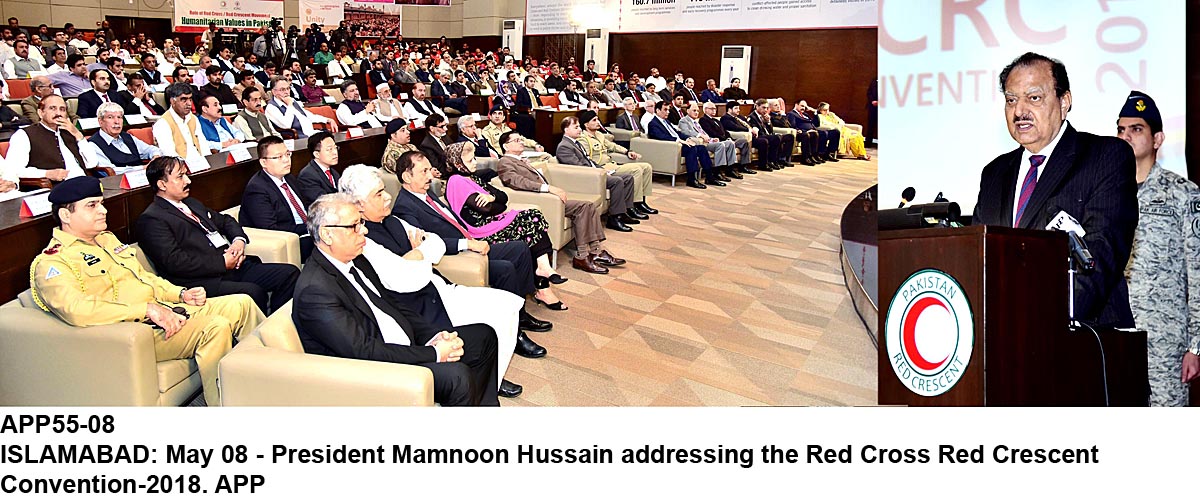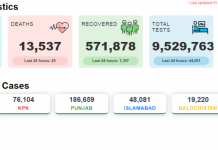QUETTA, Oct 8 (APP):Coordinator to Prime Minister on Climate Change, Romina Khurshid Alam on Tuesday said that women’s socio-economic empowerment and tackling hygiene issues are closely interlinked, improving access to hygiene and sanitation facilities directly impacts women’s health, dignity and access to equal economic opportunities.
Addressing a hygiene kits distribution event under the ‘She Power’ initiative here on Tuesday, the PM’s climate aide Romina Khurshid Alam said that access to adequate and safe [menstrual] hygiene and sanitation facilities for girls and women has remained mostly a neglected area in the country, especially in rural and low-resource settings of Balochistan.
“Addressing hygiene challenges in ways that directly improve women’s access to education, work, and leadership opportunities, we not only promote women’s empowerment but also foster healthier, more equitable communities,” she stressed.
The initiative launched in Balochistan in support by the Chinese government aims to improve health and quality of the life of the province’s young women with a focus on health, hygiene, and education. It reflects the ongoing collaboration between Pakistan and China under the China-Pakistan Economic Corridor, aiming to improve socio-economic conditions in the region.
The ‘She Power’ initiative was initiated last month with distribution of hygiene kits among schoolgirls of government schools in Hub and Uthal towns of the province.
The hygiene kits’ distribution marked the beginning of the distribution of 20,000 kits across four districts of the province including Lasbela, Hub and Gwadar.
Distribution of these kits, which contain essential hygiene products including sanitary pads, soap, hand sanitizers, educational materials on hygiene practices, aimed at promoting better health practices among young girls in the province.
The initiative reflects the ongoing collaboration between Pakistan and China under the China-Pakistan Economic Corridor, aiming to improve socio-economic conditions in the region.
Th PM’s Coordinator on Climate Change Romina Khurshid hoped that the landmark initiative would help reduce school dropout ratio among schoolgirls, enhance their school performance and their overall health by ensuring that they can manage their menstrual health with dignity.
“Local health workers and community leaders are also being engaged in promoting this initiative, ensuring that the messages resonate within cultural contexts. This grassroots approach will hopefully help overcome barriers related to stigma and misinformation surrounding menstrual health”, Ms Alam said.
PM’s aide emphasized by promoting open discussions about menstruation and hygiene, the initiative help reduce stigma associated with menstrual health. This cultural shift will encourage girls to feel more comfortable attending school during their menstrual cycles, she added.
Addressing the participants of the event, Chairperson of the Senate Standing Committee on Human Rights, Samina Mumtaz Zehri pointed out that lack of access to sanitary products, clean water, handing washing soups and safe spaces to manage hygiene and sanitation needs has always led to social stigma, health complications, often keeps women out of school and the workforce.
Ms Zehri said, “Women, mainly in rural settings, of the Balochistan province, often bear the burden of fetching water and their inadequate access to clean water, hygiene and sanitation facilities only aggravate the risk of illness, which affects not just their health but also their ability to work and participate fully in life.”
“Educating girls and women about the importance of hygiene and sanitation can lead to enhanced adoption of safe hygiene and sanitation practices among them and their family members, which can also help reduce the social stigma,” she suggested.
Talking about the current situation of hygiene and sanitation facilities for girls and women in Balochistan province, Senator Samina Mumtaz Zehri said that the alarming state of hygiene and sanitation in Balochistan province has already placed an immense burden on the health, dignity, and education of women and girls.
The impact on women and girls is particularly severe, as they face more health risks, social stigma, and even threats to their safety due to inadequate sanitation as compared to those in other provinces, the chairperson noted.
“Poor hygiene practices, particularly among young girls in the province, are only contributing to widespread health issues, including diarrheal diseases, skin infections and maternal health complications,” she explained.
The Senator Zehri, however, emphasized the importance of empowering schoolgirls and women in Balochistan through health awareness and educational initiatives for their socio-economic empowerment and their overall healthy lives.
مضمون کا ماخذ : آن لائن اور ایپلیکیشنز














